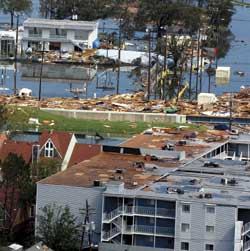Cost Crunch
New York looks for new funding sources.
After years of watching expenses like utilities and payroll go up while support from the federal government goes down, the New York City Housing Authority decided to take action. In a new plan, the agency took steps to stabilize its financial health.
Since fiscal year 2001, the NYHCA has spent $414.4 million on expenses not reimbursed by the federal government. With a 42 percent increase in utility costs, a 752 percent increase in pension costs, and a 29 percent increase in personnel costs, the housing authority finds itself in a bind with its 21,000 nonsubsidized units.
Most affected by these changes may be the 27 percent of tenants in New York City’s subsidized housing who make the highest incomes (their average is $67,367) and spend less than 30 percent of their income on rent. In some cases, their incomes have increased since they moved in some 20 years ago, but their rents have stayed stable.
The agency has always charged residents for unreserved parking on its property, but the annual fee was only $5. The new charge will be $75 a year. Increases in electricity and water costs caused the authority to place a surcharge on appliances that use more electricity. Residents with these appliances pay more monthly. The agency also is increasing the fees on things broken by residents. “We haven’t increased those fees since 1989,” says Howard Marder, a spokesman for NYHCA.
David A. Smith, president of Recap Advisors, a Boston-based company that provides financial services for affordable housing, says other housing authorities are facing the same problems as New York’s, and that external forces are causing these issues. “The federal government has been shortchanging the system for three or four years now,” he says.
–Les Shaver
